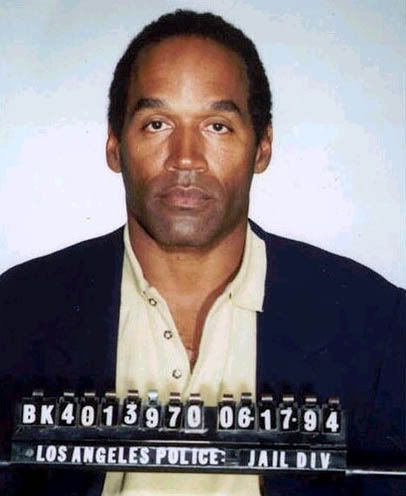 Thursday, November 16, 2006
Thursday, November 16, 2006
Crime and Punishment

The gossip blogs were buzzing yesterday that OJ Simpson has secretly written a book called “If I Did it”. In this alleged book, Simpson is said to gruesomely describe graphic details about the hypothetical murder of his former wife and her friend Ron Goldman. Because of the laws forbidding a man to be tried twice for the same crime, Simpson could completely confess to the murders with no legal ramifications. The publishers are selling this book as Simpson’s Confession.
Exactly who are the jurors that acquitted this man, and are they the same people that voted for Bush?
Simpson’s alleged confession to a crime for which he was acquitted puzzles me. What drives this man to tell his side of the story? Is it ego, or is it peace of mind?
The case of OJ offers us a window into the humanity of a criminal. A similar window was opened last Friday night after viewing the play adaptation of Fyodor Dostoyevsky’s Crime and Punishment at the Arden Theatre Company in Philadelphia.
Three actors brilliantly bring Dostoyevsky’s classic to life in a mysterious, exciting and always thought provoking story about the search for a man who took an axe to a pawnbroker and her sister in 1866. The set is built backwards, divided by hazy clear screens that remarkably create the illusion of time. The adaptation does not reveal the identity of the killer until the audience has questioned and analyzed the morality of each character. The banter between the police chief Porfiry and the protagonist Raskolnikov is written with such wit and delivered with such natural flow that you are transported behind the curtain of an 1866 police precint. The adaptation, the writing, the set, the actors, it was all simply fantastic.
But the best part of any good theatre is that it makes you think and question. In combination with Simpson’s recent confession, I’m left pondering the following:
Can a person ever really get away with committing a crime? For if not caught and punished and a prisoner of the state, aren’t you but a prisoner of your own guilt, rationalization and internal sickness? Is confessing to a crime the only way to free yourself from it? Are there those among us who are seemingly normal individuals that one day snap, push aside all social boundaries and commit a heinous crime, only to just fall back into normalcy with the calm and cool of a 007 spy and no feelings of remorse? Do people without a conscious really exist?
The twelve-steps of Alcoholics Anonymous includes a step that forces accountability for every significant harm of your past. Skipping this step could mean a return to drinking, using and addictive behavior. Inherent in this step is the idea that there are mental ramifications for crimes gone un-noticed. As I’ve learned first hand, we are only as sick as out secrets.
What has brought about Simpson’s recent confession? Is it an attempt to find inner peace? Or is it ego run riot? And how does society respond appropriately?
Does this mean I can’t buy the book until it hits the 99 cent bargain bin?
Labels: Pop Culture Casualty, Sober



